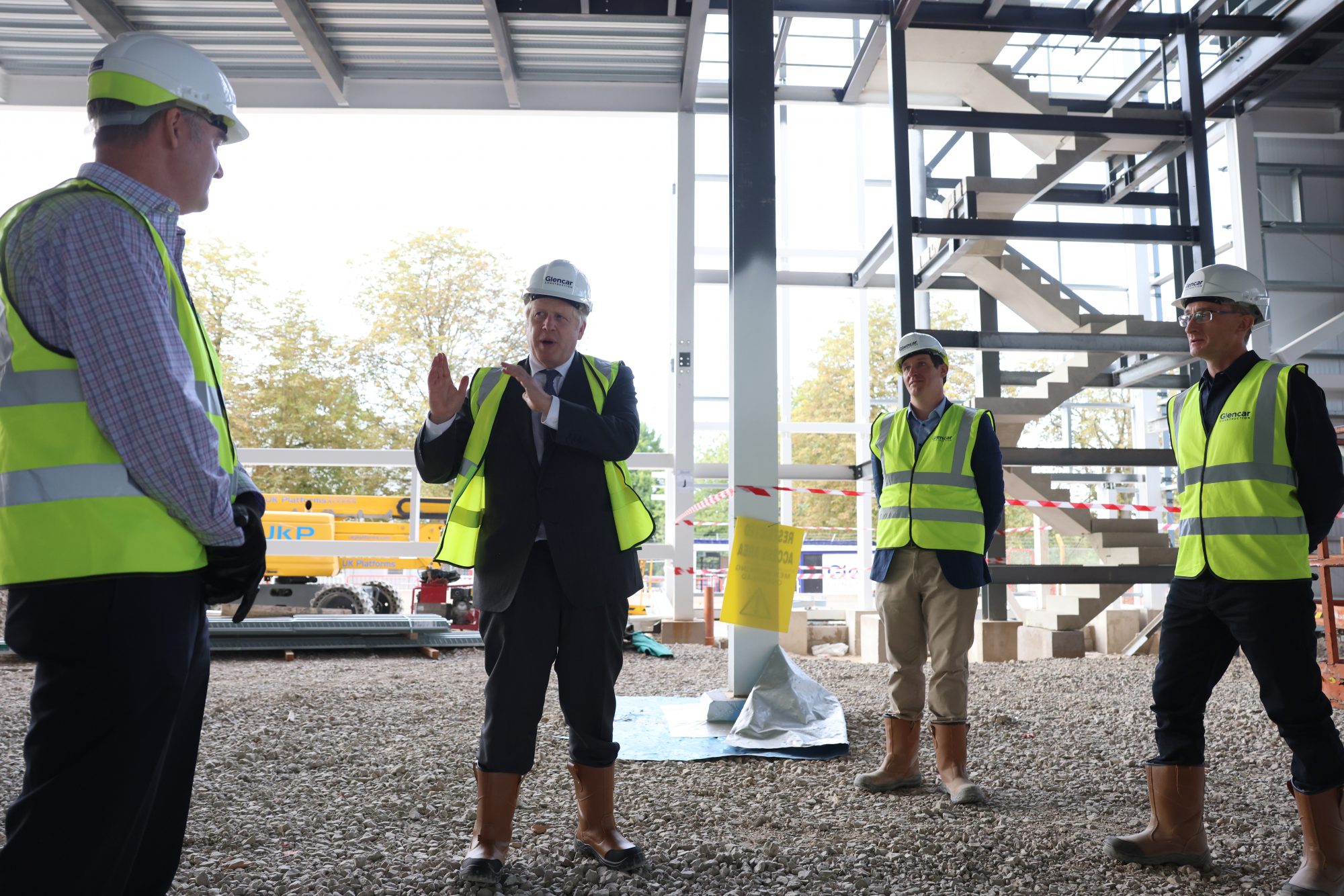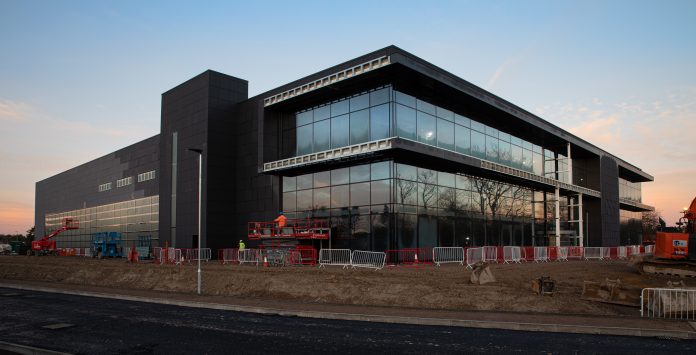We spoke with Dr Matthew Duchars, CEO of the UK’s first dedicated Vaccines Manufacturing and Innovation Centre (VMIC), about their work not only to provide an integral response to COVID-19, but as a centre of excellence advancing the vaccine sector on a global scale
Tell us about the pioneering vaccine development and manufacturing Centre itself as part of the UK’s scientific infrastructure and its strategic objectives, and how you came to be involved.
“When I heard about VMIC, I got quite excited about it, as I feel it has filled what was missing from the UK. In the past, the UK has been successful in developing and discovering vaccines and pioneering new technologies, but not so good at then translating that into commercial processes for manufacturing in the UK – this has historically gone overseas. Part of what VMIC is about is to try and bring that centre of gravity back towards the UK, encouraging people to come and work with us, whether it is people from within the UK or from around the world.
Within VMIC there is a support structure to help the early-stage development of products during that difficult time when you have discovered a potential vaccine, and you are trying to move it into the clinic and on towards a commercial product. There are many potholes that you can fall into, and VMIC’s objective is to guide, steer and help people who have not done this before to avoid those potholes so that they do not make the same mistakes that others have made in the past.
Among VMIC’s many objectives are:
- To provide rapid, economic vaccine manufacturing, getting it quickly into the clinic.
- To help point people in the right direction so that, as they develop vaccines and products, they think about how to do that in a way that’s going to be scalable, economic, and commercial.
- To be a reliable manufacturer for people to develop the process all the way from discovery to licensed product.
- To provide experience, knowledge and technical capability that our academic, research or industry partners can draw on to move their product on.
- And finally, the last objective, which became highly relevant in the last year, was to provide a level of an emergency response capability so that if there were to be an epidemic, outbreak, or accidental release of a biological agent, we could manufacture vaccines rapidly and use that to protect and save lives, not just for the UK but for people throughout the world.”
That brings us onto the COVID-19 pandemic and your role within that. Due to this, and the threat of future pandemics, your project was awarded £93m by the UK Government in 2020 to expand vaccine production capabilities and to fast-track the development schedule so the VMIC facility could be accelerated by a year. What did this mean for VMIC?
“Yes, so as we were starting to build the facility, COVID-19 hits, and everybody globally was caught on the back foot. On one hand, it was lucky that the UK had already started to think about the need for a facility such as VMIC but on the other hand, unfortunately the timing was not quite right. It became apparent that we needed to start thinking about changing and accelerating the design. Therefore, we increased the facilities capacity by 20-fold: instead of being able to manufacture two to three million doses in three months, which is what we had originally anticipated for small outbreaks and epidemics, we increased to a facility that could make 70 million doses, effectively a dose for everyone in the country, in a six-month period. Furthermore, we compressed the building schedule, bringing it forward months ahead of schedule to make the facility operationally ready in 2022, with access to certain parts in 2021.”
What is the importance of partnerships and collaboration for VMIC in terms of UK manufacturing capacity and vaccine development, particularly during a crisis and having extremely ambitious timelines to meet?
“We needed to address the question: How do we manufacture a vaccine this year when the facility, even with the accelerations, still was not going to be operationally ready until early 2022? Therefore, we came up with the concept of Virtual VMIC, which is a rapid deployment manufacturing capability. We were buying all the equipment to go into VMIC anyway, so we decided to buy it earlier and loan it out to collaborators who have a facility where they could install it and manufacture this year. Oxford Biomedica, rather fortuitously, had just built a facility and had some empty space in it, so we came to an arrangement with them and supplied the equipment necessary to fit out their cleanrooms. This allowed us to scale up and bring manufacturing online in 2020 rather than having to wait. By October, the equipment had been installed and qualified, and passed an inspection with the MHRA, and manufacturing was able to start in the last quarter of 2020. That has really helped us as a country to be ahead of the curve in terms of getting a large number of doses made and out to people.”

As VMIC will be the country’s first of its kind, what will this mean for the UK once fully constructed and operational in 2022 and beyond?
“The primary purpose of VMIC was not to be a facility for solely providing pandemic response. Yes, we will be set up to do that. But the real purpose is to help develop vaccines and vaccine processes for the sector in general. Therefore, when we open the doors it’s going to be about focussing on helping to grow the sector, helping to develop innovative ways to manufacture vaccines, to make them more economic, more successful and be able to produce them more rapidly, helping that sector to really grow and become established, not just in the UK, but worldwide.
Despite being based in the UK, I see us as a global organisation, we are here to help with the development of vaccines for everyone, on every continent. The point is, we have a centre of expertise and excellence to help advance the sector. The fact that this expertise resides in the UK helps to draw people into the UK, but it is not just an explicit UK venture.
It is important to realise that VMIC is not a commercial organisation, but a non-profit company, and we are not there to make the most money we can out of, a COVID-19 vaccine for example, but to help other people succeed. That is central to what we’re trying to do, we are there to help research teams and commercial companies be successful. And that success is everyone’s success because that means we all get vaccines, contributing to protecting and saving lives.”
Please note: This is a commercial profile











